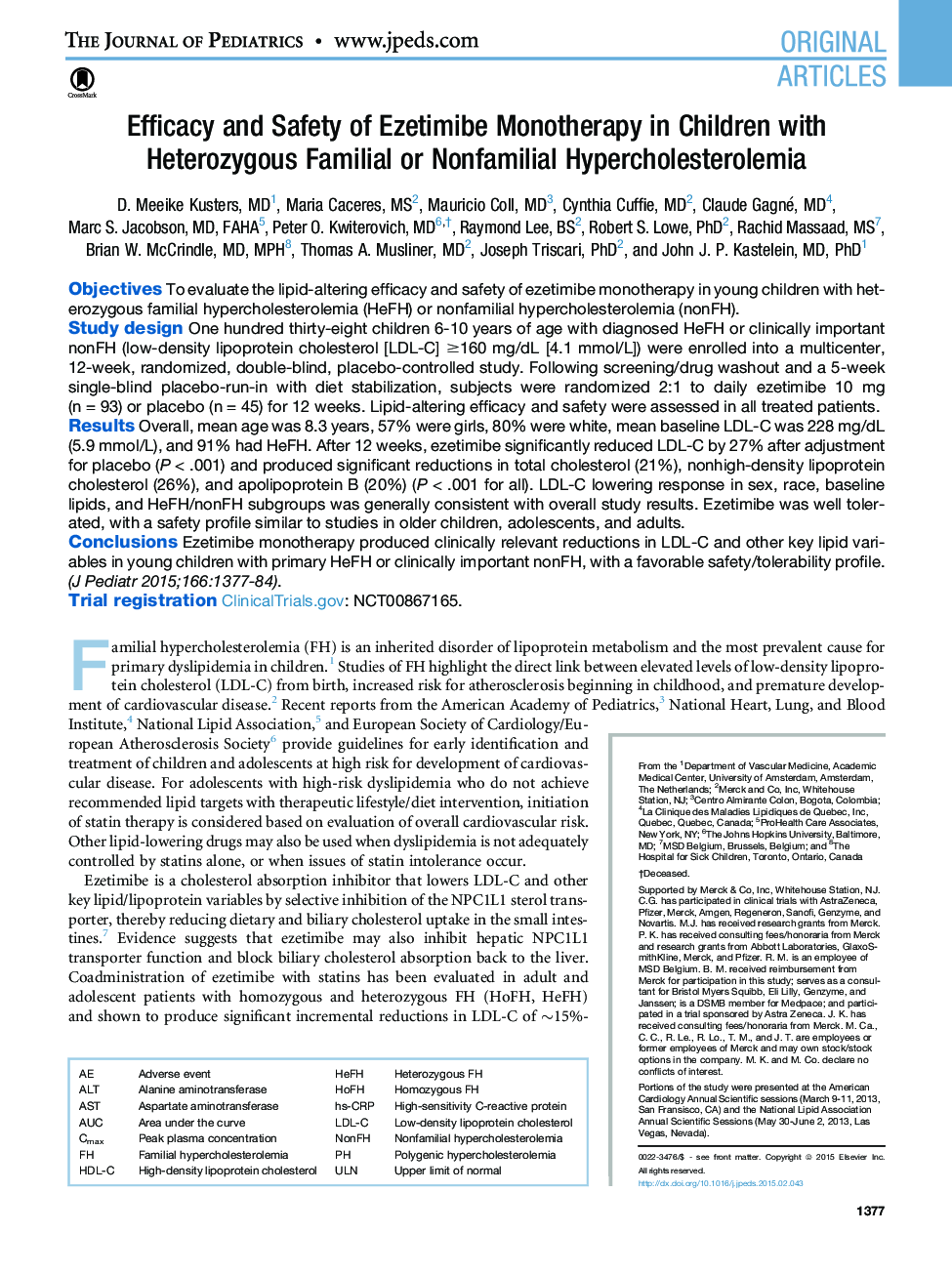| Article ID | Journal | Published Year | Pages | File Type |
|---|---|---|---|---|
| 6220794 | The Journal of Pediatrics | 2015 | 11 Pages |
ObjectivesTo evaluate the lipid-altering efficacy and safety of ezetimibe monotherapy in young children with heterozygous familial hypercholesterolemia (HeFH) or nonfamilial hypercholesterolemia (nonFH).Study designOne hundred thirty-eight children 6-10 years of age with diagnosed HeFH or clinically important nonFH (low-density lipoprotein cholesterol [LDL-C] â¥160 mg/dL [4.1 mmol/L]) were enrolled into a multicenter, 12-week, randomized, double-blind, placebo-controlled study. Following screening/drug washout and a 5-week single-blind placebo-run-in with diet stabilization, subjects were randomized 2:1 to daily ezetimibe 10 mg (n = 93) or placebo (n = 45) for 12 weeks. Lipid-altering efficacy and safety were assessed in all treated patients.ResultsOverall, mean age was 8.3 years, 57% were girls, 80% were white, mean baseline LDL-C was 228 mg/dL (5.9 mmol/L), and 91% had HeFH. After 12 weeks, ezetimibe significantly reduced LDL-C by 27% after adjustment for placebo (P < .001) and produced significant reductions in total cholesterol (21%), nonhigh-density lipoprotein cholesterol (26%), and apolipoprotein B (20%) (P < .001 for all). LDL-C lowering response in sex, race, baseline lipids, and HeFH/nonFH subgroups was generally consistent with overall study results. Ezetimibe was well tolerated, with a safety profile similar to studies in older children, adolescents, and adults.ConclusionsEzetimibe monotherapy produced clinically relevant reductions in LDL-C and other key lipid variables in young children with primary HeFH or clinically important nonFH, with a favorable safety/tolerability profile.Trial registrationClinicalTrials.gov: NCT00867165.
